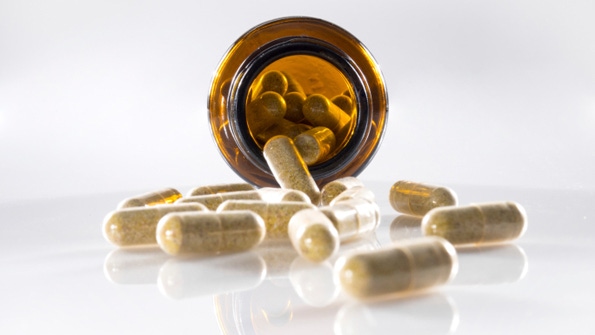Supplement industry must self-police as demand soars, FDA retreats
Driven by COVID-19 and related concerns about immunity, sales of dietary supplements are spiking just as the FDA announced it would be curtailing facility inspections. Council for Responsible Nutrition President Steve Mister says the need for the industry to act responsibly has never been higher.

My grandfather used to say that integrity is what you do when your parents aren’t watching. We are learning that lesson anew, thanks to COVID-19.
FDA announced weeks ago that it was suspending foreign facility inspections during the pandemic. With so much of the dietary supply chain stretching across the globe, companies immediately knew they would have to be more discerning in the raw materials they would accept. Then, the agency announced that it was shutting down domestic routine inspections as well, to protect the safety of its own inspectors.
So now, even though the dietary supplement industry has been declared “essential” by the Department of Homeland Security, we’re also being left on our honor to maintain the high standards of quality that have been mandatory for the past ten years. It’s sort of like when your parents leave you alone for the weekend when you're a teenager.
To be clear, it wasn’t as though FDA was inspecting every facility even before the pandemic. By its own records, FDA stepped foot in only about 5% of all food facilities in a given year. But there was always the possibility that tomorrow morning an inspector might be on your doorstep. FDA’s very public announcement that routine GMP inspections were being curtailed was, I think, intended to send a message: “Hey, we’re counting on you not to screw up.” It was symbolic; everyone was put on notice—retailers and consumers, too—that the parents have left the house.
The temptation is made even more enticing by the increasing difficulties with international supply chains. Companies have reported that it’s more difficult to get ingredients, particularly premium ones. While China is starting to come back “online,” some U.S. manufacturers anticipate long production and transportation delays. India has essentially shut down manufacturing and transportation nationwide and several firms have reported difficulties obtaining Indian supplies of turmeric, ashwagandha and boswellia among other botanicals.
As Europe wrestles with the virus, supplies of alpha lipoic acid, bovine collagen, echinacea and black elderberry are impacted. Freight capacity has declined, driving up costs. Even domestically companies note higher transportation costs and unpredictability, delays in production and testing delays among laboratories.
And all of this at a time when consumer demand for supplements is soaring, leading to out-of-stocks and empty shelves. Coronavirus has dramatically increased U.S. consumer demand with regard to many dietary supplements, whether it's for improved nutrition during the crisis, assistance with sleep and stress relief or supporting a stronger immune function to improve general resistance to health threats. Increased sales have further taxed supply chains not equipped to handle the surge in demand.
So the question looms: What will you do when no one is watching? Now is the time for companies to double down on their quality controls. Re-evaluate your analytical methods—are they really fit for purpose and likely to detect adulteration in a heightened risk environment? Upgrade your testing methods for incoming ingredients and ask hard questions of your third-party laboratories—are they likely to detect a problem, or will they give you the results they think you want?
Implement the added assessments recommended by the ABC’s Botanicals Adulterants Prevention Program (BAPP), particularly for those ingredients known to have higher likelihood of adulteration or substitution. If you’ve never had a third party inspector audit your facility, consider bringing in a reputable one to certify your facility is GMP compliant just as soon as social distancing and local ordinances permit.
And if you already use a third party auditor, make sure you have implemented all their recommendations from the last inspection. Send your products out for third-party evaluation to verify that ingredients match label claims and what’s on the label is what’s in the bottle.
We all have a role to play to insure that consumers get the highest quality dietary supplements every time. Being recognized as “essential” makes it essential we carry our responsibility through: we are members of the healthcare sector with a duty to safeguard the safety and health of our consumers. Being accountable, trustworthy, and yes, responsible, has never been more critical.
Mom and dad left for the weekend—what will you do?
About the Author(s)
You May Also Like




